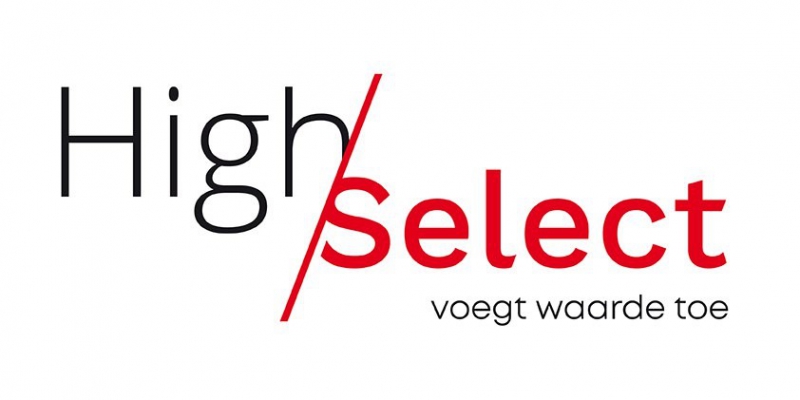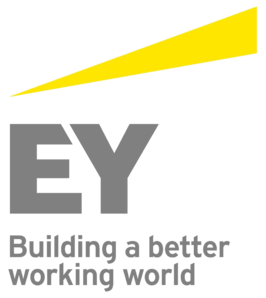
Carlo Cuijpers met Edward Freeman
“Stakeholder theory is the idea that businesses create value for customers, suppliers, employees, people who hold the money, and potentially other groups within society. This opposed to the idea or motive that profit is what makes businesses work. Stakeholder theory says that is a mistake. Profits are important, but you have to create value for all stakeholder groups. In a free society, if you forget about one of these groups they will go to government to try and have their interest reinforced. It is a better world and you will be more successful if you voluntarily try to understand your company as supplying value for all of these groups.
I will tell you a story. A large chemical company wanted to get to zero pollution. Therefore, the CEO went to all the company’s plants to announce this new goal. At one of their plants he talks to the engineers, who tell him: ‘’we can’t do it’’. They explain the equipment is too old and the processes are too dirty, the plant will never achieve this standard. The CEO tells them that in that case they will have to close the plant because they are serious about the new goal. In this case with the environment or the society on one end, and employees on the other, the employees lose. Later the engineers go back to the CEO. They say they found an innovative solution to get to zero emissions and actually for lower costs as with their previous processes.
 when trade-offs are unacceptable you trigger the only great resource which is for free, the human mind. We rethink how these interests and our processes work. Thats where innovation starts. This is what we do not understand when we think economies are always in equilibrium, companies are always on the edge of extinction, and we always have to make trade-offs in favour of one party at the expense of shareholders. That story has to be replaced.”
when trade-offs are unacceptable you trigger the only great resource which is for free, the human mind. We rethink how these interests and our processes work. Thats where innovation starts. This is what we do not understand when we think economies are always in equilibrium, companies are always on the edge of extinction, and we always have to make trade-offs in favour of one party at the expense of shareholders. That story has to be replaced.”
Then in stakeholder theory the role of the manager is more of an actor who balances different interests?
“In my earlier work I used the term balancing, but now I would like to use the term harmonize. As a musician I like that idea better because when you think about harmonizing the notes are different but they fit together. It is about thinking: how do interests fit together in a good way? Balancing is closer to: I give some here, and I will give the others some back later. As a metaphor it could be understood as a trade-off process.”
Within harmonizing you always have to create additional value, does this make the manager more of an entrepreneur?
“Exactly. Where there is conflict in the old view you want to resolve it. Make a trade-off, and cut it by a hard decision. In the new view conflict is good. Where there is conflict there is an opportunity for value creation. Like in the story of the chemical company, there is conflict which provided an opportunity for value creation.
That is how capitalism works. It works on this friction. Stimulating innovation. I tell my students to look for the places where there’s conflict between interests or needs, the pain points in their own life. That is the place to start a business.”
But would not a lot of more managerial personalities try to stay away from these pain points?
“Evading these pain points is, I think, why a lot of companies underperform. The problem is that they only perceive risk, and quiet down conflict rather than raise it up. While it is less about risk, and more about opportunities.”
Is this still possible for companies? Don’t stakeholders have opportunities to raise up these conflicts using modern communication?
“True! When you are an iconic brand you are held responsible for everything in the
 value chain or as I like to call it ‘’the responsibility chain’’. We had someone from Nike to come talk with our students. He said they were working really hard on reducing the use of child labour by their suppliers, and that they have been very successful on that. Now though they are being held accountable for child labour in the flower fields for the dye they use. They do not know how to do that yet, but they are aware they have to worry about that.”
value chain or as I like to call it ‘’the responsibility chain’’. We had someone from Nike to come talk with our students. He said they were working really hard on reducing the use of child labour by their suppliers, and that they have been very successful on that. Now though they are being held accountable for child labour in the flower fields for the dye they use. They do not know how to do that yet, but they are aware they have to worry about that.”
Within this situation nowadays, will stakeholder theory become more important in the nearby future? Because at the same time the power of individual governments and their regulatory institutions which support the ‘shareholder approach’ is decreasing due to globalisation.
“I think that is right. While at the same time we ought to know that the dominant story: shareholders above all, profits are all that matter.”
Is that still the story?
“It is definitely the story you find in the media, and in popular culture. Although it is changing very fast, because of the global financial crisis, globalisation, the speed of Twitter and Facebook, and lots young entrepreneurs who are starting businesses that make the world a better place and make money.
Both of these aspects are
 important. You have to make money or in other words profit, to pay the bills. My point is that this is not the purpose of a business. The purpose of a business is usually something else. Entrepreneurs do not start a business simply to make money, but because they have some visions about how to do things better. They are on fire about changing the world. We need more of these entrepreneurs, and more managers in established companies to act like entrepreneurs. You cannot see profits and purpose as contradictory. The example I like to give is that of red blood cells. Do you need red blood cells to live?”
important. You have to make money or in other words profit, to pay the bills. My point is that this is not the purpose of a business. The purpose of a business is usually something else. Entrepreneurs do not start a business simply to make money, but because they have some visions about how to do things better. They are on fire about changing the world. We need more of these entrepreneurs, and more managers in established companies to act like entrepreneurs. You cannot see profits and purpose as contradictory. The example I like to give is that of red blood cells. Do you need red blood cells to live?”
Yes.
“Is it your purpose in life to make red blood cells?”
No, at least I hope not.
“I hope so too. Making red blood cells is a necessary condition but certainly not a purpose. The same counts for companies. They need profits to exist, to pay the bills and invest in the future.
About stakeholder theory becoming more important: I have been doing this for a long time now and have never been more interest in it.”
Never? Even not when Tony Blair in 1996 spoke of the ‘’stakeholder economy’’?
“I think that was a very misleading way to understand stakeholder theory. I was never in favour of this. Personally, I am much more into business. The partnership between sectors at this higher level of analysis gets away from: how do I start a business, how do I create value for stakeholders?”
So the general concept is not to be applied on a macro-economic scale as Tony Blair sort of did?
“I have started to think about that, and have started to write a book on this with some colleagues. The main question is: can we apply ’conscious-capitalism’ to society at large? My take on that is to think of government as a value-creator. Or phrased differently, could we take look at government on how it enables value creation in society.
An example in the US, most of the schools are public schools funded by government, maybe public schools should encourage people to be entrepreneurs. Teach them how to start businesses. Not just for profit, but in the sense of how do I use business to make the word a better place? I think that would be a revolution.
In this way I like to think about government as a value-creator, but that is different from Blair in terms of sectors. Blair, by this, popularized the stakeholder idea much more as I did. Because of this I was called a socialist. While in fact I am not. I see myself much more of a Libertarian.”
Even though you do not like to be called ‘’a socialist’’ in your work you do speak of: ‘’cowboy capitalism’’, ‘’going to war with capitalism’’, and even ‘’infidels’’ meaning economists and finance-theorists.
“Yes. You have to make fun of the current situation and story. I often said if you listen to the current story business is about a bunch old greedy old bastards who try to do each other in. If you actually pay attention of what is going on in business it is very far away from that. It is one of those things where the story does not match the reality. Nothing is wrong with that, until we start conducting policies that are in line with the story and focus on regulating the story. While for every Enron there are 10.000 businesses which just try to do the good and right thing and change the world. We need this new narrative that makes clear what business really is. I have often also said that capitalism is the greatest system of social corporation we have ever invented. It is about cooperating together to create value. That is what makes it run. And yes, in a free society there is competition. But this is a second order process. I think it is important to reverse that.”
Do you also see yourself more as a great thinker, or more as an academic?
“Well…my goal is to inspire my students. That is what gets me up in the morning every
 day. I even keep it in my wallet so I see it every day. If tomorrow was my last day on earth I would like to inspire my students, and of course some other things: spend some time with my family, play a bit of music, etcetera too. Interpret student very broadly here, I do not only mean people who spend time with me at the University of Virginia or other universities, but pretty much anyone who wants to listen. My job is to inspire anyone who wants to make business better. We have to set the bar. Whatever problems there are in the world we as students of business have an obligation to try and make it better! To improve practice and not just accept the way it is.”
day. I even keep it in my wallet so I see it every day. If tomorrow was my last day on earth I would like to inspire my students, and of course some other things: spend some time with my family, play a bit of music, etcetera too. Interpret student very broadly here, I do not only mean people who spend time with me at the University of Virginia or other universities, but pretty much anyone who wants to listen. My job is to inspire anyone who wants to make business better. We have to set the bar. Whatever problems there are in the world we as students of business have an obligation to try and make it better! To improve practice and not just accept the way it is.”
What is the ’take home message’ you would like to give to students here?
“I spend many years practicing martial arts and we have a saying in ‘taekwondo’: ‘’even the board teaches me lessons’’, and I smash those. This attitude has brought me a lot. When you are open to new ideas and you do not think the world revolves around you, then you will truly learn. “
















.png)









